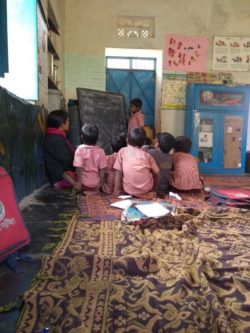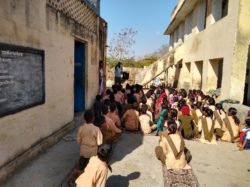ESRC-DFID Researching Accountability in Education

Researching Accountability in the Indian System of Education (RAISE)
Across India, many children in elementary schooling find themselves in ‘learning poverty’, and achievement of learning outcomes is disproportionately low among highly disadvantaged groups. In this context, RAISE builds understandings of education accountability by investigating how the conditions and outcomes of children’s learning are contingent upon social relations. RAISE adopts a mixed-methods approach, focusing on norms set out in India’s 2009 RtE Act around access, participation and monitoring. It traces how these norms interact with, and are re-shaped by, competing ideas and conditions across and within four scales of the education system - family, school, community and the bureaucracy. RAISE takes the States of Bihar and Rajasthan as case study sites, and its sample includes government-run, low-cost private and non-formal provision. The relational lens reveals that the functionalist approach to educational accountability, which dominates policies and reform effort, tends to fragment and individualise responsibilities, and to detach actors from the contexts that condition their actions. These processes tend to reinforce rather than challenge existing power relations and hence perpetuate the very inequalities that policies seek to change.
RAISE is led by Professor Caroline Dyer with Co-Is Dr Arathi Sriprakash (University of Cambridge), Dr Suraj Jacob and Dr Rahul Mukhopadyay (Azim Premji University), in partnership and the Vidya Bhawan Society in Udaipur. 
The RAISE project is funded by ESRC/DfID under the Raising Leaning Outcomes programme (Accountability call): https://esrc.ukri.org/research/international-research/international-development/esrc-dfid-raising-learning-outcomes-in-education-systems-research-programme/ (Grant no. ES/P005802/1)
Project impact is available via: https://www.theimpactinitiative.net/
